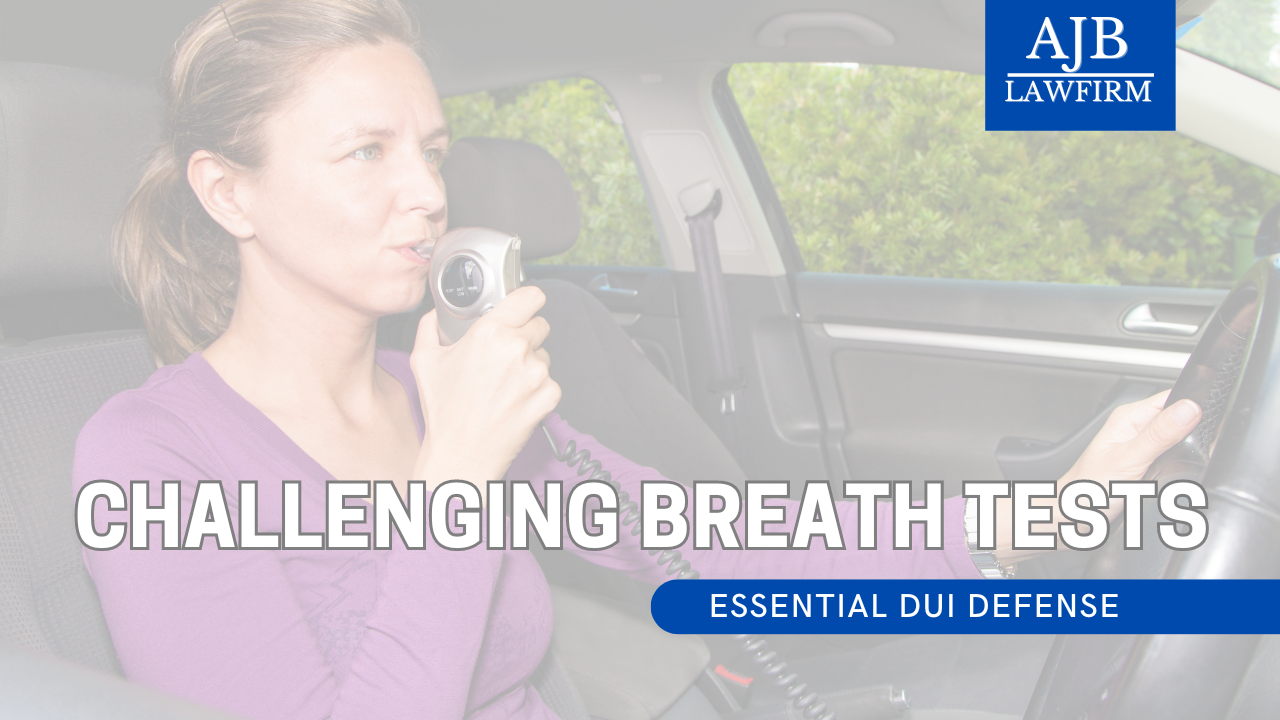Challenging Breathalyzer Test Results
A Crucial Aspect of DUI Defense
If you or a loved one is facing DUI charges in Tucson, Arizona, you're likely aware of the significant impact it can have on your life. DUI convictions can result in fines, license suspension, increased insurance premiums, and even jail time. However, it's essential to remember that being charged with a DUI does not automatically mean a conviction. Numerous aspects of a DUI case can be challenged, one of the most critical being the accuracy of breathalyzer test results. In this blog post, we'll delve into how a criminal defense attorney, like Amanda Bynum from AJB Law Firm in Tucson, can challenge breathalyzer test results to create reasonable doubt and potentially secure a favorable outcome for their clients.
Understanding the Importance of Breathalyzer Tests
In DUI cases, breathalyzer tests are often a key piece of evidence used by the prosecution to establish a defendant's blood alcohol concentration (BAC) at the time of arrest. In addition to charges for impaired to the slightest degree, the legal limit for BAC in Arizona is 0.08%, and exceeding this limit can lead to DUI charges. However, like any scientific measurement, breathalyzer tests are subject to potential errors and inaccuracies.
Challenging Breathalyzer Test Results
Maintenance and Calibration Records: Criminal defense attorneys understand the significance of maintenance and calibration records for the breathalyzer device. They can request these records to check for any gaps or irregularities. If there are issues with maintenance or calibration, it can raise doubts about the accuracy of the test results.
Operator Training and Certification: Attorneys can investigate the training and certification of the individual who administered the breathalyzer test. If the operator lacks proper training or certification, it can cast doubt on the validity of the test results.
Environmental Factors: Environmental conditions, such as extreme temperatures or contaminants in the testing environment, can impact the accuracy of breathalyzer tests. Attorneys can explore whether these factors might have affected the test results.
Chain of Custody: Attorneys can scrutinize the chain of custody for the breath sample. Any gaps or inconsistencies in handling the sample can raise concerns about its integrity.
Cross-Examination of Experts: Skilled cross-examination of the prosecution's expert witnesses can expose weaknesses in their procedures and testimony regarding the breathalyzer test.
Alternative Explanations: Attorneys can present alternative explanations for the test results, such as medical conditions or dietary factors that might have influenced the BAC reading.
Demonstrating Variability: If the breathalyzer device shows variability or inconsistency in its results, it can be used as evidence that the device may not be reliable.
Expert Witnesses: Defense attorneys may call their own expert witnesses to testify about the limitations and potential errors associated with breathalyzer tests, including specific challenges related to the device used in Tucson, Arizona.
When facing DUI charges in Tucson, Arizona, it's crucial to remember that there are legal avenues to challenge the evidence against you. Challenging breathalyzer test results is just one aspect of a comprehensive DUI defense strategy. Attorney Amanda Bynum and the team at AJB Law Firm have the experience and expertise to examine every detail of your case and build a strong defense.
If you or a loved one needs a DUI defense attorney in Tucson, contact AJB Law Firm today for a consultation. Remember, being charged with a DUI doesn't automatically lead to a conviction, and with the right legal representation, you can fight for your rights and a fair outcome. Your future may depend on it.
